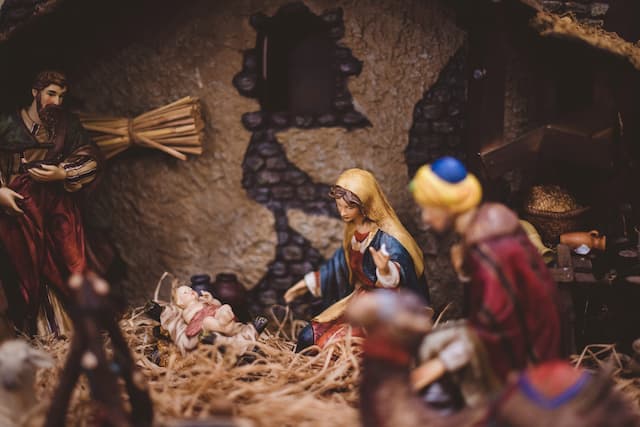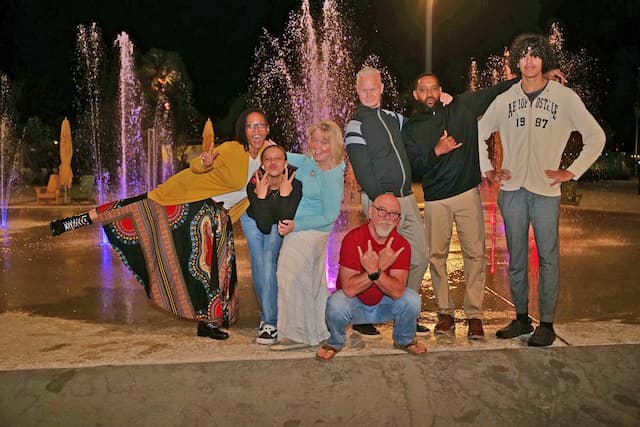21st Sunday in Ordinary Time: Entering the Narrow Gate

The theme of our readings for today’s 21st Sunday in ordinary time, proclaims the abundance and generosity of God’s salvation. The abundance of God’s salvation, however, requires people’s response and acceptance. People cannot just “coast” into salvation; it requires effort from people.
In the first reading, Isaiah prophesies that salvation is offered to all peoples. The prophet foresaw the outreach of God’s salvation, beyond Israel, to the nations of the world.
Thus says the LORD:
I know their works and their thoughts,
and I come to gather nations of every language;
they shall come and see my glory.
From the beginning it was God’s plan to save all humankind. God never intended for anyone to be excluded. This universal salvific intention of God is picked up by Jesus in the Gospel today:
And people will come from the east and the west
and from the north and the south
and will recline at table in the kingdom of God.
Jesus himself personify the inclusivity of God’s reign: He hosted meals to which even tax collectors were invited. When religious officials challenged this behavior, Jesus defended the practice by telling the parables of the Lost Sheep, the Lost Coin, and the Two Lost Sons (Luke 15, where the prodigal son’s return is celebrated in a banquet from which the elder son absents himself).
On the other hand, Jesus warns us that God’s inclusive vision is not automatic. Those who might consider themselves “insiders” may wake up to find themselves excluded, while, to their anguish and chagrin, they may see many included whom they would have considered outsiders.
In other words, God’s salvation comes with responsibility. We must not be complacent about God’s inclusion. Thus, Jesus in the gospel tells of the imagery of the narrow gate and the people rejected at the door.
“Strive to enter through the narrow gate,
for many, I tell you, will attempt to enter
but will not be strong enough.
After the master of the house has arisen and locked the door,
then will you stand outside knocking and saying,
‘Lord, open the door for us.’
He will say to you in reply,
‘I do not know where you are from.
And you will say,
‘We ate and drank in your company and you taught in our streets.’
Then he will say to you,
‘I do not know where you are from.
Depart from me, all you evildoers!’
To accept God’s salvation is like entering a narrow gate. When an entrance is narrow and many are trying to get through (think of people struggling to get into a department store when bargain sales are on), it pays to struggle and get to the front right away. Jesus is pointing to this experience and applying this to taking advantage of God’s generous offer of salvation.
Those who were rejected at the door represents, in Jesus time, those whose faith is sterile and lifeless and those hypocrites who love to show in public their holiness but wouldn’t lift a finger to ease the burden of the oppressed. They became complacent about God’s salvation since they were the chosen people but were shocked to know they are rejected in the end.
The challenge of the readings for today’s Sunday is twofold. First, the readings challenges us to live out God’s salvation seriously. God’s salvation is not automatic just because we are baptized Catholic or we go to mass every day or receive the sacraments regularly. God’s salvation is a constant struggle to live out the gospel of Jesus not just within the confines of the church but more so in the world and ordinary life we live in. It challenges us to constant conversion that we can not afford to put off indefinitely.
Secondly, we need to rejoice and proclaim the inclusive nature of God’s salvation especially to those who are rejected by society. We need to go out to the poor and hungry, the oppressed and persecuted, the hardened criminals in jail, the isolated and alienated, the lonely elderly, those dying of AIDS, the prostitutes and pornographers, and proclaim to them God’s invitation that they have a seat at the feast of God’s kingdom.
I am passionate about the intersection between new media and technology. I continue to research and apply new media in theology and vice-versa. I am also a fan of Our Mother of Perpetual Help and her continuing relevance in today’s digital world.
View all posts by Baclaran Phenomenon






